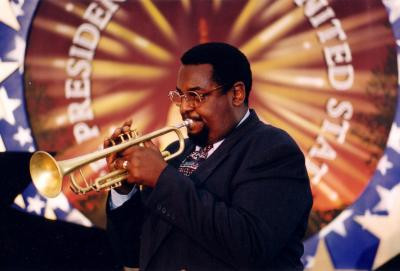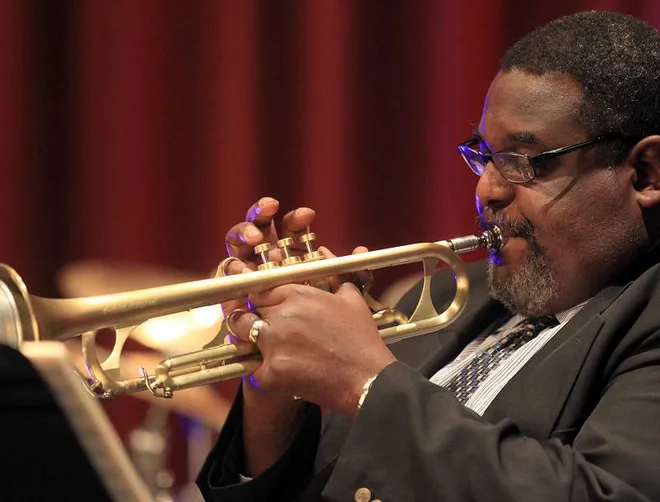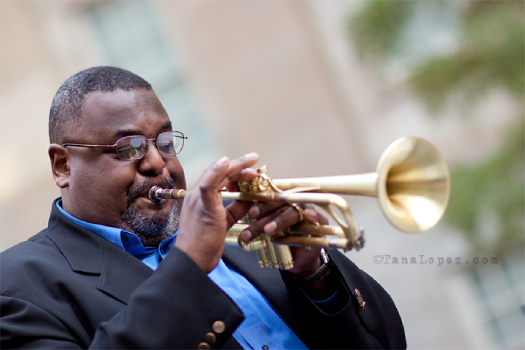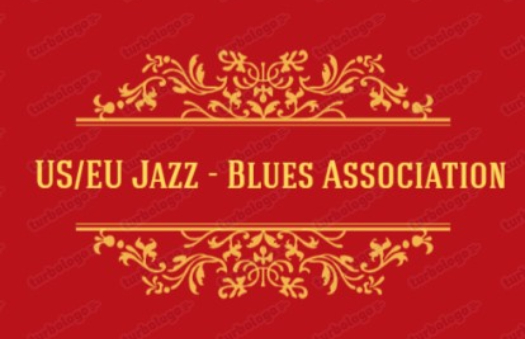There’s no clever setup this column can concoct to describe Tom Williams, who died suddenly of a heart attack. Nor should it try: Those who knew him are still processing the shock of the brilliant trumpeter’s death at age 61. To try to sum him up is to suggest that his absence in the DMV is somehow conceivable.
Even those two words—“brilliant trumpeter”—don’t do him justice, though they are correct. They’re just the starting point. Williams, the son of the late saxophonist Whit Williams, another legendary local, was a scholar of his instrument. He drew on all of its jazz grand masters; depending on who you asked, he sounded like Miles Davis, Woody Shaw, Freddie Hubbard, Clark Terry, or his personal favorite, Kenny Dorham. But these are wildly different stylists; to sound like all of them is, perhaps paradoxically, to be a complete individual.

“He mixed all these styles together and spit ’em out,” says Kenny Rittenhouse, a local trumpeter who was a friend and protege of Williams. “He was my favorite trumpeter. Nobody sounded like him.”
Williams was also exceptional on the drums, the instrument he first fell in love with. Ten years ago, at a gig that has since passed into legend, Williams was playing trumpet in a pickup band drummer Ralph Peterson led at Bohemian Caverns. Peterson, who died in 2021, was also a gifted trumpeter, and when it came time to play his original song “Pinnacle,” the bandleader got up from behind the kit and grabbed a trumpet while Williams sat down at the traps. The performance lost not a hint of swing.
Williams was a lifelong Baltimorean; he traveled the world, garnered the respect of the New York jazz A-list, and had a considerable footprint in the District as a veteran of both the U.S. Army Blues and the Smithsonian Jazz Masterworks Orchestra. He had been scheduled to lead a band at Takoma Station on Aug. 19, but he remained best known in and around Charm City.
Williams was a kind and thoughtful man. Legions of area musicians have stories of musical lessons learned and performances experienced. Anecdotes about him off the bandstand tend to be as unassuming as he was, touching on shared laughs and philosophical conversations. Often even these came back to music. This writer’s favorite memory of him was a recent one involving a weeks-long Facebook conversation about Dorham.
But Williams was no wallflower. He was a jovial cat with a warm smile and a delightful sense of humor and he loved to tell stories. Williams was the kind of musician who generates legendary gigs: the Ralph Peterson story is only one example. Another, a bizarre tale Williams loved to tell, involved trumpet icon Freddie Hubbard blustering his way across two separate Baltimore jazz clubs. In Williams’ telling, an obviously intoxicated Hubbard (“I’m talking Himalayas high,” wrote Williams) came to the Closet and challenged the younger man in a horn player’s showdown on a night when the elder’s assurance outweighed his coherence. Williams declined to take the bait: “Come on, who’s going to be stupid enough to try to ‘cut’ Freddie Hubbard?” But he obliged when Hubbard demanded a ballad, only to look up and find the titan was gone.
Alto saxophonist Gary Bartz, who was leading the band that night, remembers the story differently. “Tommy Williams wore Freddie Hubbard out at the Closet,” Bartz recalled on Facebook. “Freddie knew Tommy got him that night and said tell that fat MF I’ll be back tomorrow night. Tommy said I’m not coming back!”

Only Tom Williams could cut Freddie Hubbard on the bandstand and be so humble and self-effacing about it.
One need not know the legends or have their own Tom Williams stories to appreciate his greatness. He leaves a hefty recorded legacy. In addition to contributions to the aforementioned big bands and wonderful sideman appearances with Jimmy Heath, Larry Willis, and Bartz, he recorded two albums of his own, 1991’s Introducing Tom Williams and 1993’s Straight Street).
His unfulfilled Aug. 19 gig at Takoma Station went on in the form of a tribute led by Rittenhouse and featuring best-in-class D.C. musicians who loved and learned from the master: tenor saxophonist Lyle Link, pianist Allyn Johnson, bassist Herman Burney, and drummer Quincy Phillips.
Williams wouldn’t have wanted to be remembered in any other way.










More Stories
CD review: George Benson – Dreams Do Come True: When George Benson Meets Robert Farnon – 2024: Video, CD cover
The band was tight as ever. The Warren Haynes Band cuts loose: Video, Photos
Interview with Alvin Queen: Feeling Good – I heard these tunes played by … Video, new CD cover, Photos